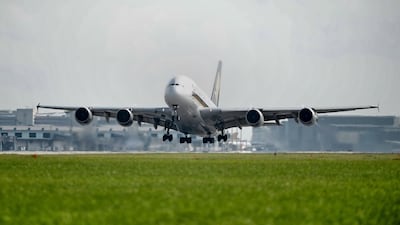If you’ve ever crossed more than a few time zones on a flight then you’re likely to have experienced the effects of jet lag. Although medically harmless, the condition can be debilitating, but with a little bit of foreword planning and know-how, jet lag is manageable.
Symptoms of jet lag vary depending on how many time zones you cross, how well your body adapts, the time you fly and your overall health. Symptoms can include extreme tiredness and fatigue, insomnia, nausea, inability to concentrate, digestive disruptions and generally feeling unwell.
Jet lag – which is a disruption to the body’s circadian rhythm, or biological clock – occurs when your body hasn’t adjusted to the new time zone. You might find yourself wide awake at 2am, yet physically unable to drag yourself out of bed at midday. In other words, your body clock is set to a different time.
People travelling east to west tend to find it easier to adjust to the new time zone because their body needs to “slow down”, although they may find themselves getting sleepier earlier than usual and waking up earlier than desired. It is usually harder travelling east because the body has to “speed up” and get used to an earlier bedtime and wake-up time.
There are many remedies for combating jet lag and each traveller needs to find the methods that work for them. One solution is ensuring you get some sunshine. Being exposed to daylight tells your body to stop producing melatonin – the hormone responsible for regulating the circadian rhythm – and this will help you get into your new time zone naturally. If you land at your destination in the evening, taking melatonin tablets can help you get a better night’s sleep.
The National's travel editor, Rosemary Behan, who got her first passport at the age of 11, is no stranger to jet lag. She travels with enviable frequency – 80 countries at last count – and has a well-executed plan to help her make the most of the time she has in every destination.
“For me the symptoms of jet lag are exacerbated by poor flight timings,” Behan says. “Often you have to deal with not only a long flight to a different time zone, but a lost night of sleep on the way out, if the departure is late at night or in the early hours of the morning. Thus the symptoms of tiredness, a lack of coordination and even nausea when you arrive are worse after these flights than a flight which leaves at, say, 10am. If possible, book a flight leaving at a civilised time, so you won’t have to collapse as soon as you arrive.”
Columnist and cultural adviser, Ali Al Saloom, an avid traveller with more than 70 destinations stamped in his passport, says the trick to avoiding jet lag is not to get stressed out. “With all of the places that I have visited, I hardly complain about jet lag. Why? Because I simply don’t think about it. If I can’t sleep, then I read a book or watch a movie – these two things always put me in the mood for sleeping.”
The rest of us can take note of these tips from Etihad’s Guest Services department for trainee cabin crew.
1. Plan to rest before your flight. Beginning a trip with a sleep debt seems to increase the duration and severity of the jet lag.
2. Avoid alcohol and caffeinated drinks on the flight. Consuming either may contribute to more severe jet lag. Drink plenty of water instead to keep hydrated.
3. Avoid over-the-counter sleeping tablets; use natural remedies such as chamomile tea, and try to create a sleep-friendly environment, controlling your light exposure using blackout curtains, eyeshades, earplugs, pillow mist etc.
4. Eat light meals. Never go to bed on an empty or too-full stomach. This could easily influence the quality of your sleep.
5. Stick to your home-base timings, which include meals, exercise and sleep if your stay is less than three days. If your stay is longer than three days, then adjust your timings to the local destination.
6. Once you have arrived, take a brief sleep and try to be active until night-time falls, so you will be able to fall asleep again and wake up fresh in the morning.
Travellers’ tips
“If my flight is scheduled to arrive early in the morning I will sleep on the plane, then wake up to continue my day in that time zone. Another option, once I arrive at my destination, is to take a shower, drink a local juice and walk around until sunset and then go to the hotel. This helps me wake up with more energy the next morning.”
Ali Al Saloom, cultural adviser and Ask Ali columnist
“Allow a day on arrival to acclimatise. If you’re going on a business trip and need to hit the ground running with meetings, consider arriving the night before to gain an edge over your competitors. If you’re going on holiday, consider it an investment in the rest of the trip. Take it easy and don’t book any big tours or tackle too many sights. Go to the gym, have a swim in the pool, go for a walk around, get your bearings and check out the local cafes and restaurants instead. The sooner you can acclimatise the better your trip will be. If you are arriving at night, have a massage when you arrive, take a melatonin tablet and go to bed. Don’t eat a big meal.”
Rosemary Behan, travel editor, The National
atomlinson@thenational.ae

